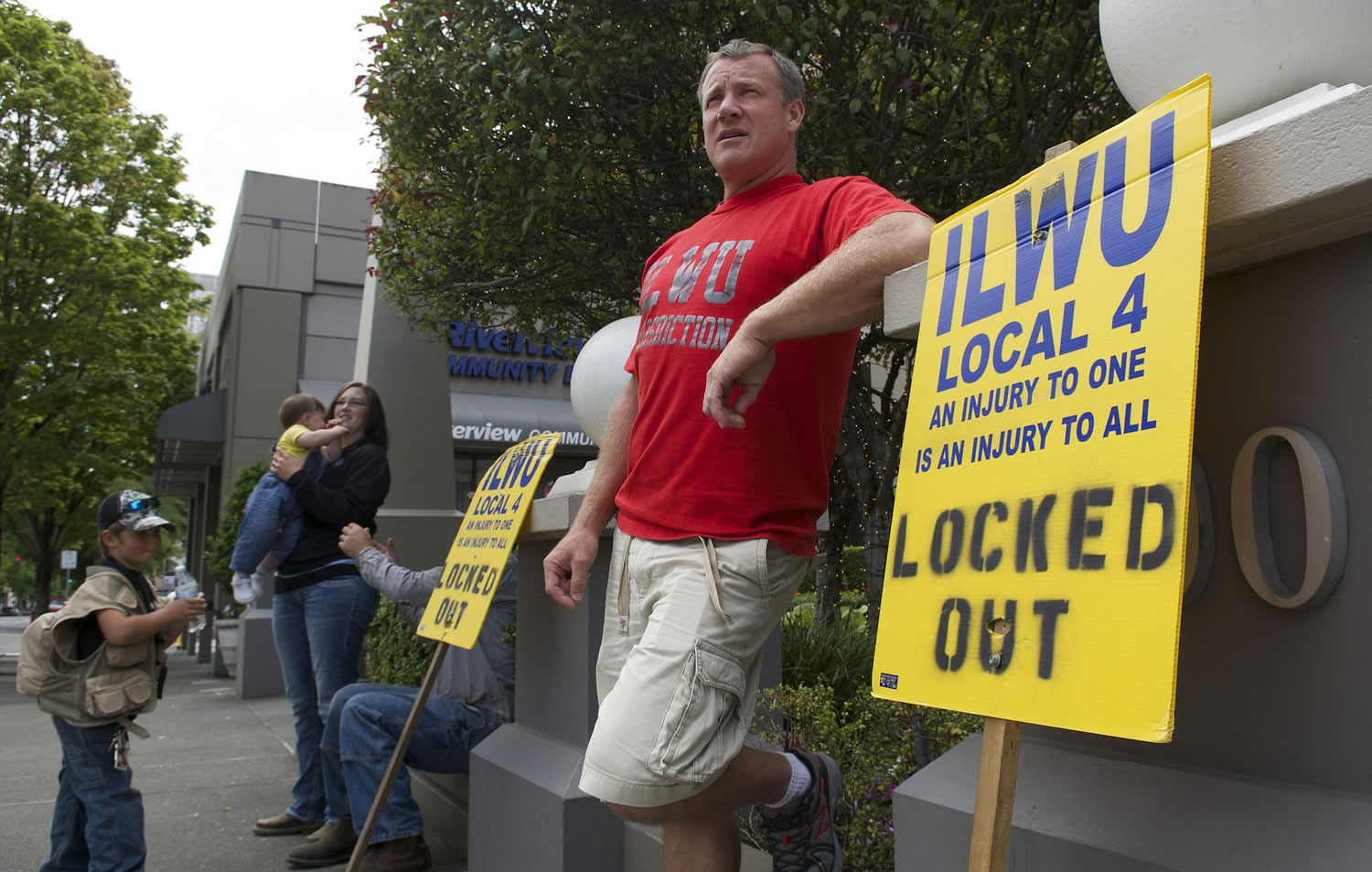Citing threats from union pickets, state grain inspectors are refusing to enter United Grain Corp.’s export facility at the Port of Vancouver, prompting the company to shut down the largest grain elevator on the West Coast. The latest development in the bitter, 17-month-long standoff between United Grain, and the International Longshore and Warehouse Union has triggered a new round of finger-pointing, with no solution in sight.
“For all practical purposes, we’re shut down,” Pat McCormick, spokesman for the Pacific Northwest Grain Handlers Association — whose membership includes United Grain — said Thursday.
It’s not the first time the company’s operation has experienced interruptions. And shippers may still use other grain terminals in the region. But the full stop of United Grain’s operation has prompted national and state agricultural and export interest groups to call on U.S. Secretary of Agriculture Tom Vilsack to restore inspections by directing federal personnel to take over the work.
The refusal of inspections by the Washington state Department of Agriculture creates “an extremely troubling precedent that will cause irreparable damage to the integrity and reliability of the nation’s … grain inspection system,” the groups wrote to Vilsack in a July 14 letter.
It’s unclear whether state inspections will restart or if federal checkups will be ordered. McCormick said United Grain is “pursuing all directions” to restore inspection services.
The complex situation involves multiple parties, including Washington Gov. Jay Inslee, United Grain, the Port of Vancouver, the Longshore union, state grain inspectors and others. And it underscores the tension over a labor contract dispute that intensified in February 2013, when United Grain locked out Longshore members.
Two essential arguments frame what amounts to a larger Northwest quarrel: To boost their competitiveness, the grain-terminal operators say they want a new contract that mirrors employer-friendly terms the Longshore union signed in February 2012 with Export Grain Terminal in Longview. The union says the demands by United Grain, Columbia Grain in Portland (where dockworkers were locked out in May 2013) and Louis Dreyfus Commodities — which operates facilities in Portland and Seattle — aim to break the union and hurt workers.
‘Greater risks’
A primary issue in the latest flap over grain inspections is Gov. Inslee’s decision in mid- to late-June to stop providing the State Patrol security escorts for state inspectors that he’d ordered last fall. The inspectors had said they were being intimidated and threatened by union picketers while trying to reach United Grain through a gate on the port’s east side.
In an email to The Columbian Thursday, Jaime Smith, a spokeswoman for Inslee, said the governor originally authorized the security escorts to support inspections, in hopes it would give United Grain and the Longshore union time to negotiate an agreement. Smith said negotiations “during that eight months were unsuccessful, and it became increasingly clear that keeping (State Patrol) escorts in place was not resulting in productive negotiations as intended.”
Subsequently, Jason Ferrante, grain inspection program manager for the state Agriculture department, notified United Grain that inspections would end on July 7, in light of unacceptable safety risks. Union picketers’ behaviors have periodically escalated and “posed greater risks” to inspectors even with State Patrol officers on hand, Ferrante wrote to the company.
In response, United Grain and the Port of Vancouver sent separate letters critical of the state Agriculture department’s decision to no longer provide grain inspections. They argue there’s little or no evidence that it’s unsafe for state grain inspectors to do their work.
The state Agriculture department “has a duty to determine how to safely transport its own inspectors to the facility, whether that means calling the police when necessary, reporting criminal behavior, accepting secure transport, or filing a lawsuit against the (Longshore union),” Richard Alli, an attorney for United Grain, wrote in a July 3 letter to Ferrante. “Instead, the (Agriculture department) has elected to shirk its duty in order to appease the (Longshore union).”
‘A pretext’
Hector Castro, a spokesman for the state Agriculture department, said Thursday those who claim the situation isn’t unsafe for grain inspectors don’t have to “show up to work every single day facing that kind of consistent harassment.”
Castro said the state Agriculture department asked the federal government to provide grain inspection services but it declined, citing similar safety concerns.
In an email to The Columbian Thursday, Jennifer Sargent, spokesman for the Longshore union, said state grain inspectors don’t feel safe at the picket lines because of conditions created by United Grain. “The use of taxpayer-funded police officers to provide escorts for a private corporation was wrong from the start,” she said.
McCormick said Thursday that Gov. Inslee’s decision to discontinue State Patrol escorts “seems more like a pretext” to apply pressure to “get a settlement in the dispute.” He added, “We think that’s inappropriate, and we’ve indicated that to federal and state officials.”
Smith, the governor’s spokeswoman, said Inslee was clear with both United Grain and the Longshore union that the State Patrol’s services “were temporary and not to be considered a standing arrangement.” She added, “The only solution to this impasse is for both parties to come together immediately and negotiate.”




